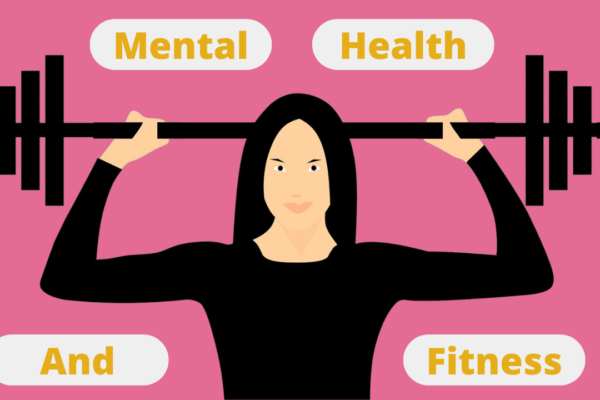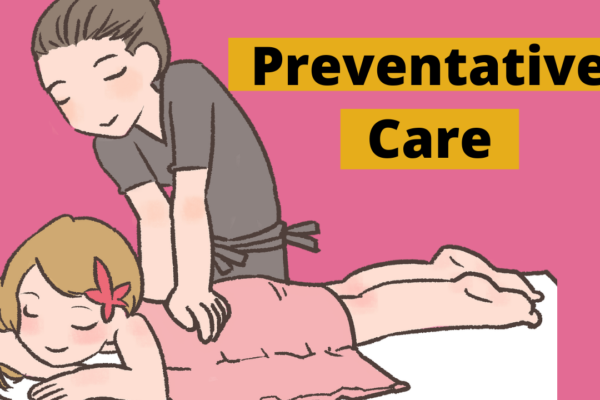Table of Contents
How To Cope With Depression In 12 Proven Steps: Step 9
In this post, I will cover:
-The important role relationships play in managing depression.
-How to build a healthy support system.
-How to build on your existing support system.
-Skills for managing depression in relationships and preventing further loss.
Before reading on, be sure to review the skills discussed in my previous post, How To Cope With Depression In 12 Proven Steps: Step 8.
This is the first set of four skills in the third and last pillar of fundamental skills for managing depression. In the first pillar, we discussed skills for addressing our thoughts to combat depression (thought challenging and reframing). In the second pillar, we discussed the skills for increasing healthy activities and goal setting (behavioral activation). In this last pillar, we will discuss skills for managing depression in relationships, and how to leverage relationship, to improve our quality of life. This pillar of skills is saved for last, because they require building on prior skills in pillars one and two, and relationships tend to be the most difficult area to manage for those suffering from depression, and for all of us in general.
Let us start off by reflecting on why relationships are so important to begin with. The social interactions we have with others have the potential to produce positive outcomes in the way that we interpret our environment, our sense of self (self-concept), our relation to the world around us (self in context) and our prospects for the future. Our interactions with others also allow for a shared experience of the human condition, which in and of itself, has a comforting impact.
A core problem with depression, is that the compensatory behavior that we are inclined to exhibit in effort to alleviate our negative emotions, moves us farther from healthy interactions with others, not closer. These behaviors are usually rooted in the Harmful Thinking Habits that we discussed in our first pillar. These behaviors include social isolation, social avoidance, excessive sleeping (hypersomnia), lack of interest or passion in activities or socialization (anhedonia), withdrawing, becoming easily irritable and less responsive to other’s attempts to engage us.
These behaviors associated with depression lead to negative, unhelpful moods, such as anger, sadness, loneliness, fear, shame and guilt. These emotions, in turn, feed back into the isolative behaviors that prevent us from engaging in healthy relationships. It is a negative feedback loop.
SKILL: CHAINING
Remember the chaining skill we applied to our thoughts and activities? Well, the same concept can be applied to managing depression in relationships. We still start with a neutral event that appears negative in context, such as a breakup, and then seek a behavior that is most likely to improve our mood in conjunction with social engagement.
Example:
9 (best mood): make plans with friend to distract from the loss, and build on existing relationships.
8: sending a private message, letter, text or phone call to ex owning role in breakup (creates objectivity).
7: asking for feedback from a friend about own role in breakup (perspective)
6: call best friend to vent
5 (EVENT): BREAKUP
4: send mean post on social media
3: ignore friends who reach out (telephone calls, txt messages)
2: pick arguments with family
1 (worst mood): isolate and cancel plans with everyone.
The above exercise is helpful, because it reminds us that we may not be able to anticipate or control certain events in our life, but we always have options in how we choose to respond to them. It also highlights the notion that our healthy responses to events often involve soliciting support from others in how we choose to cope. Healthy choices generally lead to healthy interaction and improved relationships, over time, when practiced with consistency.
SUPPORT SYSTEM
When I think of support systems, I think of four general categories that supportive others fall into.
Practical/Logical, Advisors, Steadfast, and Intimate supports. These are just recommendations, but you can call your domains whatever you want, or have as many as make sense to you.
When thinking of your support system, it is helpful to map it in a way that allows you to clearly see, from a bird’s eye view, how balanced it is across these various types of support domains.
–Give and Take: In each of the above categories, there should be people that you get support from, and also those that you offer support to. No relationship is always going to be even or equal in this regard, and even within the same relationship, the current will flow and alternate in either direction depending on the circumstances. The best way to seek balance then, is to try and make certain that you are both giving and receiving in different capacities across these domains.
Maintaining A Healthy Balance
–Limit the number of people you offer support to. Burnout is a real thing, and you will be of no use to anyone if you burn out from overextending yourself.
–Barriers: Barriers to maintaining healthy supports are fear of abandonment, trust issues and judgement. Be careful to manage these with caution, so that you do not miss out on opportunities to get better support from your environment.
–Cut loose unreliable supports. If a particular support person has been inconsistent at best and continues to disrupt your flow when seeking help, then it is okay to invest your time somewhere else. Opportunity cost is a real issue here, and deadweight cannot be tolerated if you are to learn to be effective in managing depression in relationships.
–Helpful tips for nurturing your support system: Communicate your needs clearly and concisely. Identify the best match between your identified problem, and your supportive domains, and the supports within that domain; we often default to the most convenient support, which is not necessarily the best fit in a given circumstance.
PRACTICE
-Draw out four squares, one for each domain.
-Draw a line down the middle of each.
-On one side, list the people you get the most support from.
-On the other, list the people you offer support to.
-Reflect: In which domains do you have the most support? In which domains are you lacking the most support? Are you depending too heavily on any one particular support? Is there a name repeating a lot across your domains, and if so, why? What can you do to improve your support system?
How To Make New Supports
In working with my clients, one of the biggest complains I hear is the challenge with making new friends in light of depression. You see, by the time that people start seeking help for their depression, they have usually lost or forfeited a lot of their support system to their anxiety and or depression, and it is very hard to start from scratch. For most of us, our support systems develop organically, over a long period of time, sustained by our routines around meaningful healthy activities, such as work, school and religion. For the isolated and timid individual, the idea of going outside their comfort zone and forcing social interaction is terrifying.
A good starting place
Generally, the best place to start making healthy supports is to plan for natural, organic conditions. By this, I mean that one ought to set out to engage in an activity that they are already familiar with and have an affinity toward. We discussed this in our review of the second pillar of skills. However, now we are specifically looking to seek out meaningful activities in the company and engagement of others. This is especially helpful, because even if you do not end up making any connections in the activity, then you at least will have enjoyed doing something you love.
Find existing platforms
When it comes to mental health, technology can certainly be a two-edged sword. Social media can be a pitfall that triggers low moods and harmful thoughts, but there are a plethora of helpful platforms for soliciting support and planning activities. Below are some of the most common ones I differ to when assisting clients with social engagement and building supports.
https://www.volunteermatch.org/
Keep in mind that relationships develop slowly, and require repeated interactions over a long period of time to grow. If you are eager to build supports, or anxious, it can become easy to make some common mistakes, such as oversharing, burning supports out, expecting too much in return, or taking things too personally. Of the pitfalls I just mentioned, oversharing is usually the most troublesome, especially if you have a history of substance abuse. There is a tendency to “get it all out there”, or to try and connect quickly with others through self-disclosure. The problem with this is that generally, others will not reciprocate at that level and will become guarded if you expect too much in return too soon. Also, sharing everything, or too much too soon, will place you in a vulnerable position, because now the other person knows more about you than you do about them, which can lead to a power differential in the blooming relationships, which can create undesirable social dynamics that become norms, solidifying skewed boundaries.
Pace your interactions
Start slow. Start with neutral environments with time limits, such as meeting at a café, or bookstore. Be sure to arrange your own transportation and do not relay on others to make it happen. As best you can, anticipate triggers, and mitigate possible stressors.
The next interaction could be a little more formal, such as going out to eat (it may be best to start with breakfast and work toward dinner), a movie or a show. Once you become better acquainted, you may start to consider ride sharing.
If you are struggling with coming up with ideas for possible activities, brainstorm activities of interest that are in line with your values and build on that. Possible suggestions are sports events, playing sports, hiking/walking groups, book clubs, church, volunteer groups/non-profits, free city events such as art-walks and concerts in the park, cultural events and locations like museums and botanical gardens.
Key Points
-Healthy social exchanges improve your mood.
-You have a choice in how your support system is structured and the level of engagement for various supports.
-You can build a customized support system.
-Support systems are comprised of both giving and receiving.
-You can get better support by matching the appropriate support to your current needs.
-It is possible to become more efficient at managing depression in relationships.
Practice
-Evaluate your current support system and identify ways that you can improve it.
-How could you add people to your support system to bolster it and in which domains?
-Commit to an enjoyable activity that you can engage in this week that involves other people.
Up Next
I will cover the relationship pitfalls that aggravate depression and how to mitigate them
The Mental Health Toolbox: Resources and Support for Therapists Seeking Growth & Impact.
Mission Statement: To equip therapists with the tools, knowledge, and strategies they need to enhance their practice, boost their income, and ultimately, improve the lives of their clients. We achieve this through accessible, high-quality content, practical resources, and a supportive community.
ASK: If you have a question you’d like me to answer here on the blog (even if you think it’s a silly one!), please use the form on the CONTACT ME page, or the comment section below. I would be happy to take a poke at it and provide a long form answer when appropriate.
SHARE: Also, be sure to share it with a friend, as there is still a lot of work to be done in raising mental health awareness.
SUBSCRIBE to get your FREE MOOD TRACKING TOOL and quick Mental Health Hacks in addition to this newsletter. Sign-up with the form below.
Recommended Reading
Heads up: This article/page does contain affiliate links to products sold on Amazon, which I recommend in the context of this discussion, because they have proved to be helpful to me and/or my clients. As an Amazon Associate I earn from qualifying purchases by way of commission at no additional cost to you.

NEED CRISIS HELP? If you need immediate crisis help with your depression, you can call the National Suicide Prevention Lifeline at 1-800-273-8255 or text “START” to 741-741
References:
Group Cognitive Behavioral Therapy for Depression:-Jeanne Miranda, Ph.D; Stephanie Woo, Ph.D.; Isabel Lagomasino, M.D., M.S.H.S.; Kimberly A. Hepner, Ph.D.; Shelley Wiseman, B.A.; and Ricardo Muñoz, Ph.D. Revised August 2006.
admin
Latest posts by admin (see all)
- How to Build a Referral Engine Without the “Hustle”: - January 12, 2026
- ADHD Tips for Therapists | with Dr. Jennifer Dall - May 28, 2025
- Why Therapy Fails Men (And How to Fix It) – Insights with Marc Azoulay - May 11, 2025










